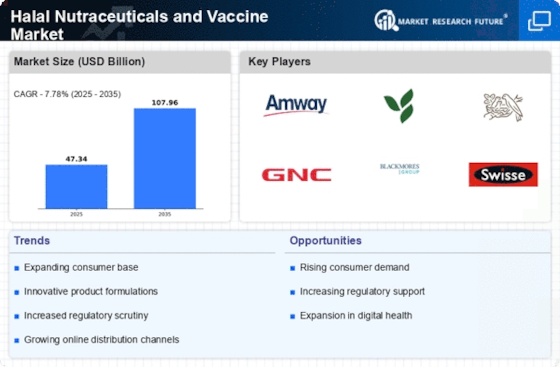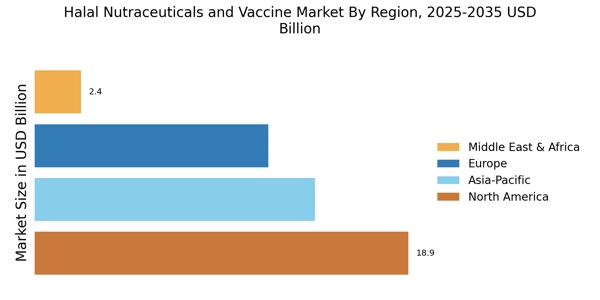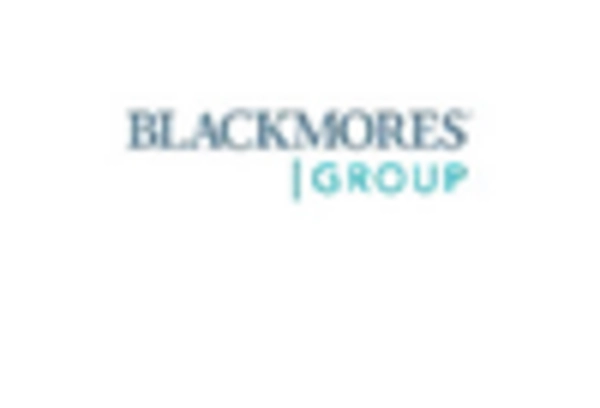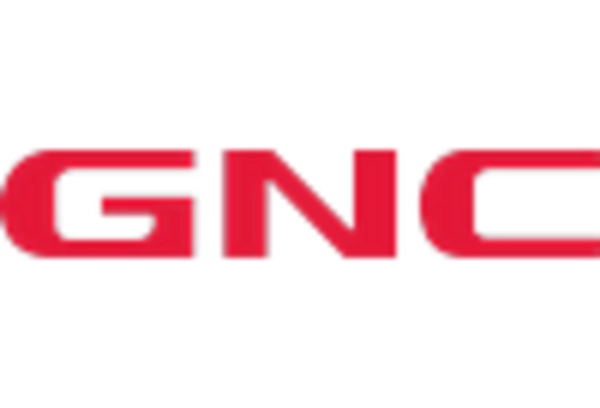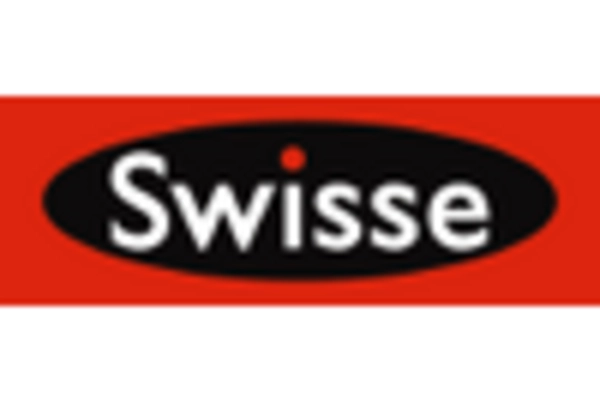Expansion of Muslim Population
The Halal Nutraceuticals and Vaccine Market is significantly influenced by the expansion of the Muslim population worldwide. With an estimated 1.9 billion Muslims globally, the demand for Halal products is expected to rise correspondingly. This demographic shift is not only increasing the market size but also diversifying the types of nutraceuticals and vaccines that are being developed. The Muslim population is projected to grow by 70% by 2050, which suggests a sustained demand for Halal-certified health products. This demographic trend is likely to encourage manufacturers to innovate and expand their offerings in the Halal Nutraceuticals and Vaccine Market.
Regulatory Support for Halal Standards
The Halal Nutraceuticals and Vaccine Market benefits from increasing regulatory support for Halal standards across various regions. Governments and regulatory bodies are recognizing the importance of Halal certification in ensuring product safety and quality. This support is fostering an environment conducive to the growth of Halal nutraceuticals and vaccines. For instance, countries with significant Muslim populations are implementing stringent regulations to ensure that products meet Halal requirements. This regulatory framework not only enhances consumer trust but also encourages manufacturers to invest in Halal-certified products, thereby expanding the market.
Increasing Awareness of Health and Wellness
The Halal Nutraceuticals and Vaccine Market is experiencing a notable surge in consumer awareness regarding health and wellness. This trend is driven by a growing understanding of the importance of nutrition and preventive healthcare. As individuals become more health-conscious, they are increasingly seeking products that align with their dietary preferences, including Halal-certified nutraceuticals. The market for Halal nutraceuticals is projected to reach USD 100 billion by 2025, reflecting a compound annual growth rate of approximately 10%. This heightened awareness is likely to propel the demand for Halal vaccines as well, as consumers seek assurance that these products meet their ethical and religious standards.
Rising Demand for Natural and Organic Products
The Halal Nutraceuticals and Vaccine Market is witnessing a rising demand for natural and organic products. Consumers are increasingly seeking health solutions that are free from synthetic additives and chemicals. This trend is particularly pronounced among health-conscious individuals who prefer Halal-certified nutraceuticals that align with their values. The organic food market is projected to reach USD 300 billion by 2025, indicating a substantial opportunity for Halal nutraceuticals to capture a share of this growing segment. As the demand for natural products continues to rise, manufacturers in the Halal Nutraceuticals and Vaccine Market are likely to adapt their offerings to meet these consumer preferences.
Technological Innovations in Production Processes
Technological innovations are playing a crucial role in the Halal Nutraceuticals and Vaccine Market. Advances in biotechnology and production processes are enabling manufacturers to create Halal-certified products that meet the evolving needs of consumers. For example, the use of plant-based ingredients and advanced extraction techniques is enhancing the quality and efficacy of nutraceuticals. Furthermore, innovations in vaccine development, such as mRNA technology, are likely to lead to the creation of Halal-compliant vaccines. These technological advancements not only improve product offerings but also contribute to the overall growth of the Halal Nutraceuticals and Vaccine Market.


